Dounreay Is Platform For Scots Clean-up Expertise
29th September 2009
Scottish companies are marketing their expertise in nuclear decommissioning to delegates from seven countries that are in Scotland to learn how the country is dismantling its nuclear heritage.
The visit is being seen as an opportunity for companies in Scotland to gain a bigger share of a global market worth hundreds of billions over the next few decades.
It is centred on Scotland's largest nuclear decommissioning project - the �2.6 billion closure of the fast reactor research site at Dounreay in the Highlands.
Delegates yesterday attended an exhibition by 19 companies involved in the site clean-up.
Today they stepped inside the plants being dismantled at Dounreay, where three different reactors and a variety of fuel-handling, chemical and waste plants were tested in the 20th century.
The group is drawn from countries in a decommissioning network set up two years ago by the International Atomic Energy Authority to share expertise and experience globally.
The visit is a joint effort by the IAEA, UK Trade and Investment's branch in Vienna and Scottish Development International, the Government-back inward investment agency.
Paul Dinner, of the IAEA, said the group consisted of engineers and scientists, many of whom are in the throes of preparing to decommission their own plants at home.
"Dounreay is a great opportunity for them to see how decommissioning works in practice and the level of planning and co-ordination that is needed to make it successful," he explained.
"What we have seen here is the unique integration of different sizes of companies in a single programme designed to take the site right through to closure."
The delegates have come from nuclear decommissioning organisations in Brazil, South Africa, Croatia, Russia, Slovenia, Slovakia and Bulgaria.
The visit stems from a trade mission to Vienna lead by Scottish Development International to establish commercial links with Scottish links.
"I'm very pleased the IAEA took up our invitation to visit Scotland and Dounreay in particular because we have a great story to tell," said Murray Bainbridge of Scottish Enterprise.
"We've three civil nuclear sites in Scotland being decommissioned at the present time and the skills and expertise being developed at each is a great commercial asset we can export to other countries.
"Our objective is to impress upon these countries the expertise that exists here and which can help them to safely clean up and dismantle their own legacies."
Related Businesses
Related Articles
TAE Technologies and UKAEA partner to commercialise fusion tech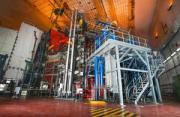
Joint venture to develop neutral beams for fusion and non-fusion applications, creating high-skilled jobs and establishing a critical supply chain. TAE Technologies, a leading US private fusion energy firm with over 25 years at the forefront of scientific innovation, today announces a bilateral and reciprocal investment commitment with the United Kingdom's national fusion laboratory, the UK Atomic Energy Authority (UKAEA) to commercialise TAE's proprietary particle accelerator technology for the global market.
Buried Hazards, Unfinished Business - What the NDA's 2025 Progress Report Really Tells Us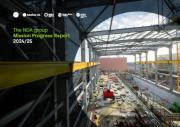
The Nuclear Decommissioning Authority (NDA) has released its 2025 Mission Progress Report is a slightly sprawling document chronicling one of the UK's most complex environmental undertakings. The safe dismantling of its early nuclear legacy.
New recruit officers join the Civil Nuclear Constabulary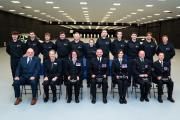
The Civil Nuclear Constabulary (CNC) welcomes its newest recruits. The CNC hosted two passing out parades for the graduating Authorised Firearms Officers (AFOs) of Initial Foundation Programme (IFP) 106.
Dounreay's next generation of talent honoured by apprentice award
Nuclear Restoration Services Dounreay's Kate Thomson has won Modern Apprentice of the Year at the Highlands & Islands Apprenticeship Awards in Inverness. Kate, who is in the second year of her apprenticeship in commercial and quantity surveying, said she was thrilled by the honour.
Taskforce calls for radical reset of nuclear regulation in UK
Nuclear Regulatory Taskforce publishes final report and calls for radical reset of overly complex nuclear regulatory system. An overly complex nuclear regulatory system has contributed to the "relative decline" of the UK's ability to deliver faster and cheaper nuclear projects.
Funding approved for Wick Harbour port consultant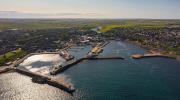
A specialist ports consultant has been appointed to develop a long-term strategic plan for Wick Harbour Authority (WHA) in Caithness. WHA has secured £47,775 from Highlands and Islands Enterprise (HIE) and the Nuclear Restoration Services, NRS Dounreay towards the cost of the services.
Fallon Campbell From Melvich Near Thurso Named As Apprentice of the Year At Awards In London
Rising star from North Scotland honoured at event to celebrate brightest and best in industry. An electrical apprentice from North Scotland is celebrating after being recognised for her contribution to industry at the 13th annual Engineering Construction Industry ECI Training and Development Awards in London.
The NDA Group Graduate Programme: more than a job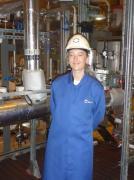
The NDA group graduate scheme offers far more than just a stepping stone into the nuclear industry; it's a chance to grow professionally, explore new places, and become part of a supportive community. Nuala Ledward, Assurance and Performance Graduate, shares how her secondment to Dounreay brought these benefits to life.
UKAEA develops 3D printing for fusion components
At its recently opened Central Support Facility (CSF), UKAEA has commissioned an electron beam additive manufacturing machine that can be used to incorporate tungsten into components, alongside a selective laser manufacturing machine. Fusion can play a key role in a global low carbon energy future.Advancing Fusion Remote Maintenance: Industry Collaboration Driving Innovation
As part of the Fusion Futures (FF) programme, UKAEA's Remote Applications in Challenging Environments (RACE) has partnered with industry leaders to develop two groundbreaking technologies for remote maintenance in fusion energy engineering. Thanks to FF funding, industry has taken the lead in maturing UKAEA technology concepts—delivering real-world solutions that enhance operational autonomy and reduce maintenance burdens in extreme environments.
